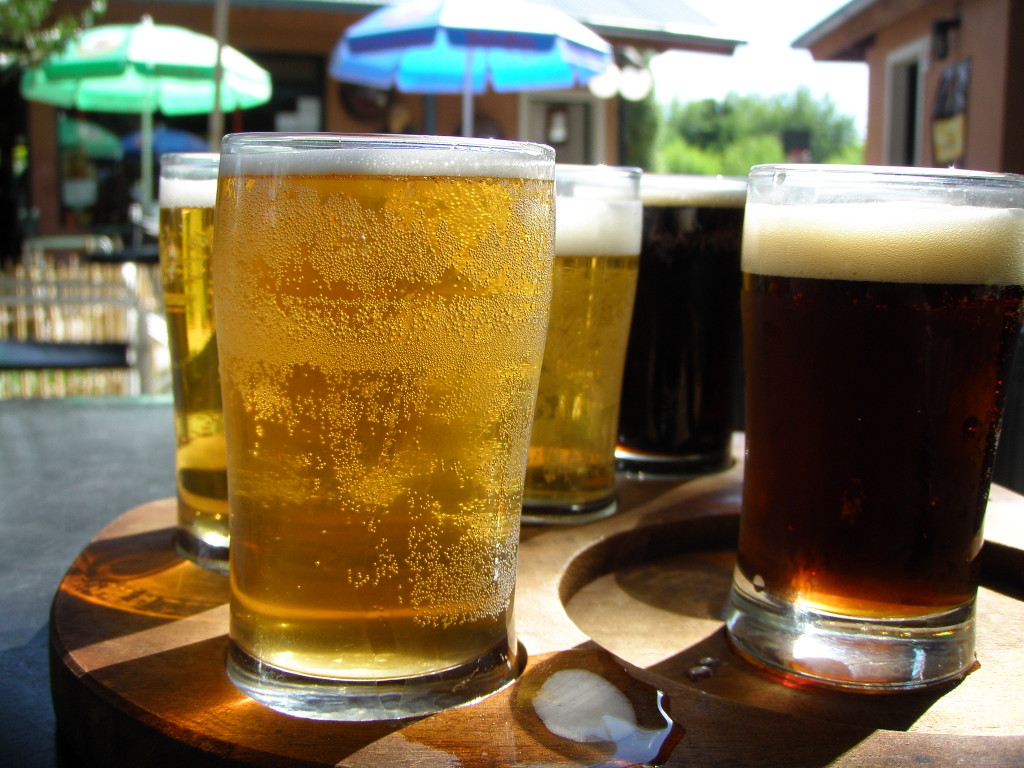Beer and Pizza Cure Cancer
6/12/2006, 3:18 p.m. PT
The Associated PressPORTLAND, Ore. (AP) — For many men, a finding by Oregon researchers sounds too good to be true: an ingredient in beer seems to help prevent prostate cancer, at least in lab experiments. The trouble is you’d theoretically have to drink about 17 beers a day for any potential benefit. And no one’s advising that.
Researchers at Oregon State University say that the compound xanthohumol, found in hops, inhibits a protein in the cells along the surface of the prostate gland. The protein acts like a switch that turns on a variety cancers, including prostate cancer.
Dr. Richard N. Atkins, CEO of the National Prostate Cancer Coalition, said the experiments are encouraging and “perhaps men could take it in pill form someday.”
He noted an ingredient in tomatoes, lycopene, has previously been linked to prostate cancer prevention.
“It’s every man’s dream to hear that beer and pizza can prevent cancer,” he said. “However, the 17 beers and four large pizzas needed to get enough xanthohumol and lycopene to help prevent prostate cancer is unfortunately not advised.”
Atkins noted that drinking 17 beers a day can lead to alcoholism and cirrhosis of the liver, and overdoing it on pizza can lead to obesity and other health problems.
Strange, this “new discovery” published just a few days ago. Especially when one looks at things like this report from more than ten years ago (excerpted, there was a lot of scientific “stuff” in the report):
Scientists Recommend 120 Gallons of Beer Per Day
By Adam Marcus
HealthSCOUT ReporterFRIDAY, Aug. 18 — It’s news that would make Homer Simpson say “No Duh!”: The chief ingredient in beer apparently helps guard against heart problems, cancer and even Alzheimer’s disease. But there’s a catch. (Of course.)
The molecule is so rare that a person would have to drink about 120 gallons of beer — or roughly 1,300 12-ounce bottles — every day to reap the benefits. The problem, Buhler says, is that xanthohumol is such a small component of hops that it doesn’t make sense to rely on beer to get it. It would be better, he says, to increase the xanthohumol content of hops, presumably through selective breeding or genetic engineering, or to make a nonalcoholic brew that’s rich in the compound.
But the best method in Buhler’s mind would be to synthesize the molecule into a pill. “And if you want to drink a little beer with it, that’s fine,” he says.
Interesting, that idea to increase the amount of xanthohumol in beer… a few years later, in 2002…
Cancer-fighting beer developed in Germany
VIENNA (Reuters Health) – It sounds too good to be true, but German scientists say they have developed a beer that could help fight cancer.
The brew contains high levels of a potent antioxidant called xanthohumol, which is found in hops and has been shown in previous laboratory studies to stem the growth of tumour cells.
The compound is found in very low concentrations in normal beer, so the German Cancer Research Institute in Heidelberg asked researchers at the Technical University of Munich to see if they could enrich the compound.
Using a method they are keeping secret, the scientists brewed beer with 10 times the normal content of xanthohumol, but a calorie and alcohol content similar to that of standard beer, the university said in a statement on Wednesday.
And by 2005, it had popped up again in an ABC News report:
Beer May Fight Disease
It turns out that beer hops contain a unique micronutrient that inhibits cancer-causing enzymes. Hops are plants used in beer to give it aroma, flavor and bitterness.The compound, xanthohumol, was first isolated by researchers with Oregon State University 10 years ago. Initial testing was promising, and now an increasing number of laboratories across the world have begun studying the compound, said Fred Stevens, an assistant professor of medicinal chemistry at Oregon State’s College of Pharmacy.
Earlier this year, a German research journal even devoted an entire issue to xanthohumol, he said.
What Stevens and others are discovering is that xanthohumol has several unique effects. Along with inhibiting tumor growth and other enzymes that activate cancer cells, it also helps the body make unhealthy compounds more water-soluble, so they can be excreted.
Most beers made today are low on hops, however, and so don’t contain much xanthohumol. But beers known for being “hoppy” — usually porter, stout and ale types — have much higher levels of the compound. Oregon’s microbrews ranked particularly high, Stevens said, which is not surprising: U.S. hops are grown almost entirely in the Northwest.
Still, no one knows how much beer is needed to reap the benefits.
Really? So the scientists who published the amounts of beer necessary to reap the benefits, the ones who discovered the compound, don’t know what they’re talking about? Most fascinating for me is the progression from 120 gallons of beer a day down to 17 beers (plus four pizzas) per day. I predict it will not be long until some brewery offers up health claims of a slice and an ale for all that ails us. The headline I wrote above will most certainly show up in a tabloid one of these days. Hmm… pizza and beer. I can live with that.
